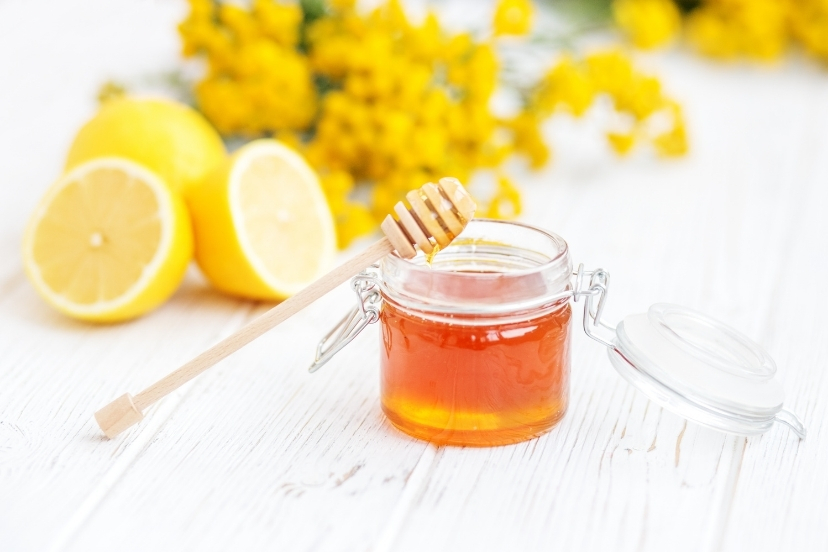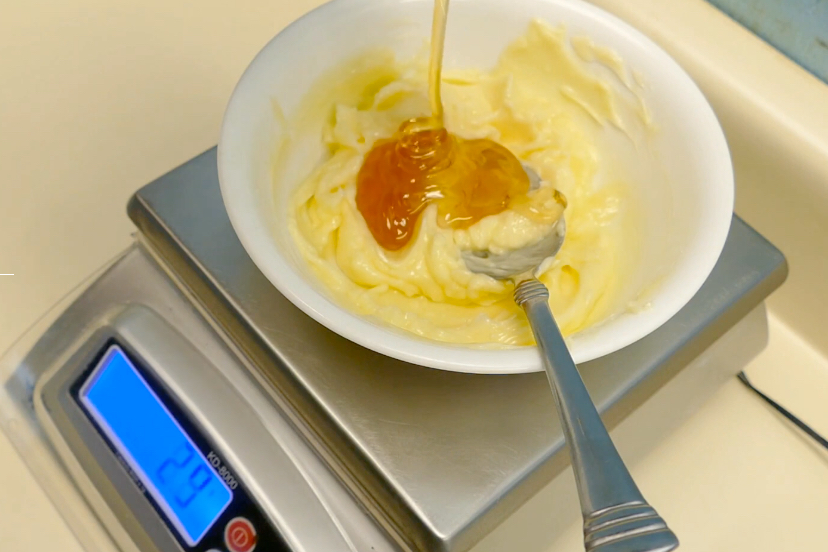Honey nutrition – two words that might not often be thought of together. But honey is far from a nutritionally void sweet.
In fact, the nutritional value of honey makes it as good for you as it is to you!
And these days, when seemingly every time we turn around another delicious food is being declared ‘bad for you’, that’s a nice change of pace.
Honey Nutrition Facts: The Specifics
The major ingredients of honey are water and sugar. The primary sugars are fructose and glucose, but honey also contains a bit of galactose, maltose, and sucrose.
Honey also contains lots of vitamins and minerals.
I’m going to reel off a long list of many of the vitamins and minerals contained in honey. But if your eyes begin to glaze over in the process of reading this list, just skip it and replace it with this: honey contains lots of good stuff!
Vitamins in honey:
- B-6
- C
- Riboflavin
- Niacin
- Pantothenic Acid
- Choline
- Betaine
- Pyridoxin
Minerals in honey:
- Calcium
- Iron
- Phosphorus
- Potassium
- Sodium
- Zinc
- Copper
- Manganese
- Magnesium
- Sulfur
- Fluoride
- Selenium
Honey also contains lots of amino acids, including:
- Tryptophan
- Threonine
- Isoluecine
- Lysine
- Phenylalanine
- Tyrosine
- Valine
- Arginine
- Aspartic Acid
- Glutamic Acid
- Glycine
- Proline
- Serine
Now these vitamins, minerals and amino acids are all present in relatively small quantities, of course. You’re not going to get the daily recommended requirement of any nutrient by eating a teaspoon of honey.
But it’s nice to know that you’re getting more than just sugar when you slather that honey on your biscuit or dribble it into your tea. Wouldn’t you agree?
Calories in Honey
For those who are counting calories (and those of us who should be!), it’s important to know that honey is a high calorie dense food.
By eating one teaspoon of honey, you’ll be consuming 22 calories. In comparison, table sugar is 16 calories per teaspoon.
However, that doesn’t quite tell the entire story.
Since honey is sweeter than sugar, you’ll likely use less of it than sugar.
So comparing the calories between a teaspoon of sugar and a teaspoon of honey is more of an apples-to-oranges comparison than apples-to-apples.
Not All Honey is the Same
Be aware that the nutritional benefits of honey that has been highly processed (heated and pressure-filtered) will be significantly diminished.
When honey is highly processed, the result is a sparkling clear product with a long shelf life.
But it’s a substantially different product from what the bees originally produced. It’s not harmful in any way, just not as beneficial as raw honey.
And there will be some variability of the nutritional makeup of honey depending upon the nectar source of the honey.
Since there are thousands of nectar producing plants from which bees make honey, there’s a wide range of potential minor nutritional differences between various types of honey.
The Fringe Benefits of Honey Nutrition
Honey also offers many health benefits beyond a simple tally of its vitamins and minerals.
Honey is an antioxidant rich food, and is even an important natural antibiotic.
And a particular type of honey, called Manuka honey, offers benefits far in excess of just simple nutrition.
Honey Nutrition Makes Sense…
When you think about it, it’s really not surprising that honey is so nutritious.
After all, honeybees live their entire lives eating nothing but pollen and honey. So it makes sense that honey would have to provide more than just empty calories to fulfill the nutritional needs of honey bees.
We have a bit of an advantage over the bees, though.
For the honey bee, honey is just sustenance, just the same-old, every-day fare. But for we humans, honey is a gustatory delight.
So we get to experience both the nutritional benefits of honey AND the sensory pleasure of consuming it.
Pass those hot biscuits, please!



